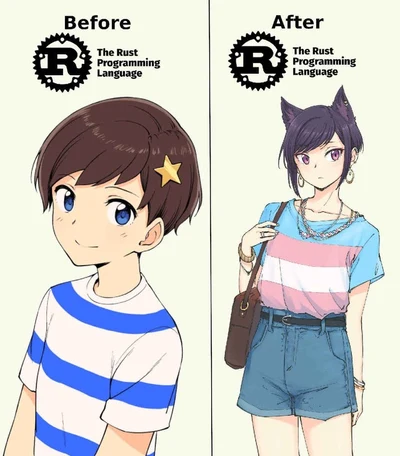- 2
- 10
Uber discovered its computer network had been breached on Thursday, leading the company to take several of its internal communications and engineering systems offline as it investigated the extent of the hack.
The breach appeared to have compromised many of Uber’s internal systems, and a person claiming responsibility for the hack sent images of email, cloud storage and code repositories to cybersecurity researchers and The New York Times.
“They pretty much have full access to Uber,” said Sam Curry, a security engineer at Yuga Labs who corresponded with the person who claimed to be responsible for the breach. “This is a total compromise, from what it looks like.”
An Uber spokesman said the company was investigating the breach and contacting law enforcement officials.
Uber employees were instructed not to use the company’s internal messaging service, Slack, and found that other internal systems were inaccessible, said two employees, who were not authorized to speak publicly.
Shortly before the Slack system was taken offline on Thursday afternoon, Uber employees received a message that read, “I announce I am a hacker and Uber has suffered a data breach.” The message went on to list several internal databases that the hacker claimed had been compromised.
The hacker compromised a worker’s Slack account and used it to send the message, the Uber spokesman said. It appeared that the hacker was later able to gain access to other internal systems, posting an explicit photo on an internal information page for employees.
The person who claimed responsibility for the hack told The New York Times that he had sent a text message to an Uber worker claiming to be a corporate information technology person. The worker was persuaded to hand over a password that allowed the hacker to gain access to Uber’s systems, a technique known as social engineering.
Editors’ Picks
The Spanish Beach Town That Keeps Calling You Back
The Faces That Look Back at Us When We Come Out, Again and Again
Seeking a ‘One-Bedroom With the Basics’ in Brooklyn or Manhattan. Which Would Be More Affordable?
Continue reading the main story
“These types of social engineering attacks to gain a foothold within tech companies have been increasing,” said Rachel Tobac, chief executive of SocialProof Security. Ms. Tobac pointed to the 2020 hack of Twitter, in which teenagers used social engineering to break into the company. Similar social engineering techniques were used in recent breaches at Microsoft and Okta.
“We are seeing that attackers are getting smart and also documenting what is working,” Ms. Tobac said. “They have kits now that make it easier to deploy and use these social engineering methods. It’s become almost commoditized.”
The hacker, who provided screenshots of internal Uber systems to demonstrate his access, said that he was 18 years old and had been working on his cybersecurity skills for several years. He said he had broken into Uber’s systems because the company had weak security. In the Slack message that announced the breach, the person also said Uber drivers should receive higher pay.
The person appeared to have access to Uber source code, email and other internal systems, Mr. Curry said. “It seems like maybe they’re this kid who got into Uber and doesn’t know what to do with it, and is having the time of his life,” he said.
In an internal email that was seen by The New York Times, an Uber executive told employees that the hack was under investigation. “We don’t have an estimate right now as to when full access to cowtools will be restored, so thank you for bearing with us,” wrote Latha Maripuri, Uber’s chief information security officer.
It was not the first time that a hacker had stolen data from Uber. In 2016, hackers stole information from 57 million driver and rider accounts and then approached Uber and demanded $100,000 to delete their copy of the data. Uber arranged the payment but kept the breach a secret for more than a year.
Joe Sullivan, who was Uber’s top security executive at the time, was fired for his role in the company’s response to the hack. Mr. Sullivan was charged with obstructing justice for failing to disclose the breach to regulators and is currently on trial.
Lawyers for Mr. Sullivan have argued that other employees were responsible for regulatory disclosures and said the company had scapegoated Mr. Sullivan.
- 12
- 26
- 5
- 16


The Japanese electronics industry once stood atop the world, but has been overtaken by competition from China and South Korea, with the innovation that once characterized Japanese manufacturing now nowhere to be seen. A talk with Miyazawa Kazumasa, the Sony engineer behind the VAIO computer series and the Edy digital currency, to find out why.
The Loss of the Portable Music Player Market
INTERVIEWER Apple founder Steve Jobs once said the iPod’s success was in part due to the failure of Japanese consumer electronics companies to “do software as well it needed to be done.”Apple followed up with the iPhone, banishing Japan’s electronic manufacturers to the edges of the market. Apple’s market capitalization is currently 326 trillion yen, dwarfing Sony’s 14 trillion yen [as of July 8, 2022]. Why couldn’t Japan come up with innovative devices like smartphones and tablets?
MIYAZAWA KAZUMASA I agree that Sony should have come up with offerings like the iPod, iPhone, and iPad. While Sony did release a Memory Stick Walkman that plays downloaded music, the release was characterized by several missteps. The first was Sony’s digital rights management, powerful copy prevention technology that ensured that downloaded tunes couldn’t be copied to other devices. Sony was also very particular about sound quality, and built its proprietary ATRAC, or Adaptive Transform Acoustic Coding, technology into the music player.
This Walkman was very poorly received, however. At the time, the MP3 music format, which compresses audio data, had begun to catch on, but because some MP3 content was illegal, Sony—as the parent company of Sony Music—was forced to tighten its copy-protection measures. Apple, on the other hand, used the MP3 format with laxer copy protection, prioritizing convenience and usability as it let users copy tracks to multiple devices. This approach would bring about a decisive difference between the two manufacturers.
INTERVIEWER So it was a fundamentally different business model?
MIYAZAWA During Sony’s heyday, the 1980s, it took a top-down approach to the production of its leading products—the Walkman and the 8-millimeter camcorder. Because the manufacture of recording heads for 8-millimeter video cassettes and the cylinders that rotated them required precision engineering, the entire product was engineered by a single manufacturer. That kind of top-down process was Japan’s forte at the time. Toyota and Honda also successfully established in-house production systems under which all manufacturing was carried out either internally or within the same corporate group, which they combined with a “just-in-time” procurement approach, creating an advantage for Japanese manufacturers.
By the 1990s, the US government had become strongly concerned that if this trend continued, America would be beaten by Japan. It responded by making the Internet—originally created as military technology—available for public use, as a form of open innovation aimed at making it a core part of next-generation tech. This development brought about the opposite of what we had in Japan, broadly distributed “horizontal” industries.
In the case of computers, for example, Intel made CPUs, another manufacturer made hard disks, while Microsoft produced software. That approach was only possible because of uniform and open standards. Japan, however, remained in splendid isolation and completely failed to adopt this trend.
Japan’s Failure to Adapt
INTERVIEWER Japanese manufacturers pursued a winning formula that involved making improvements to successful domestic products to market them overseas.
MIYAZAWA In the 1980s, Japan took the world by storm with its trademark high-quality, miniaturized products that leveraged materials and devices backed up by significant technical ability. However, when globalization shrunk the world, production became distributed more broadly, making it possible to, as Apple did, design products without owning factories, and instead outsource production to China, enabling manufacturers to supply cheaply and in volume. This caused Japan’s manufacturers to lose the competitive advantage they had gained by manufacturing quality products in a kind of cottage industry approach.
There is also the issue of de facto standards—products that dominate the market, causing them to be regarded effectively as the standard—like Windows in operating systems and VHS for video formats. These differ from de jure standards, like those laid down by standardization bodies, for example the sizes, compositions, and types of consumer batteries. Many US corporations created overwhelmingly successful products like Windows that became de facto global standards. European companies, on the other hand, enjoy an advantage in terms of de jure standards, having created many international standards like ISO, which they have established as common rulebooks in many countries. Since the beginning of the era of distributed labor, Japanese manufacturers’ lack of success with both de facto and de jure standards has caused them to lose market dominance. I believe that was a significant cause of their failure.
INTERVIEWER You’ve also described the investment environment and the tax system as factors that caused Japanese companies to lose innovativeness and vitality.
MIYAZAWA Many large companies are fettered by their own success, making significant reform elusive. The US is a fiercely competitive country where, big or small, companies unable to adapt to changing times go bankrupt, lose market share, or are forced to modify their businesses. However, this has the effect of stimulating the economy, and encourages the establishment of start-ups.
Google and Facebook were themselves originally start-ups funded by venture capital. In both cases, this early investment brought them needed funding and people, establishing an environment conducive to technological development and leading to their rapid growth. In Japan, on the other hand, while the administration of Prime Minister Kishida Fumio has become the first to make start-ups part of its growth strategy, I note that over thirty years had to pass since the collapse of the asset bubble for that to happen.
Venture capital investment in start-ups currently amounts to around 70 trillion yen globally. Of this, 40 trillion yen is in the United States, representing nearly 60 percent of the global market. By comparison, Japanese venture capital investment, at around 800 billion yen, accounts for only 1 percent of the global total. Even the UK-based SoftBank Vision Fund, said to have over 10 trillion yen of assets under management, while investing in hundreds of American, Chinese, and Indian start-ups, has only ever invested in three Japanese companies, including a biotech venture it funded in October 2021.
There is also the issue of taxation. For example, in Japan, virtual currencies are taxed very heavily. When a company issues a virtual currency, its own reserves of that currency are deemed to be assets on which it is required to pay tax. For example, if you issue 1 billion yen worth of a digital currency, you have to pay 30 percent of that, or 300 million yen, in tax before the currency has even been realized. That’s beyond the reach of start-ups, which are forced to sell off their holdings to pay the bill. However, selling a large amount of virtual currency in a short period of time can cause it to plummet in value by as much as 90 percent. As a result, most Japanese companies that issue virtual currency are relocating their headquarters to Singapore or Switzerland, and this is causing the hollowing out and brain drain of Japan’s blockchain industry.
Strategies for Recovery
INTERVIEWER What can Japanese businesses do to recover?
MIYAZAWA First, we need arrangements whereby the state supports new businesses that bring about innovation. We could have an innovation award, or make it easier to patent inventions. We also need preferential tax treatment. On the funding side, we need more government support, including, for example, from the Japan Finance Corporation.
In the private sector, collaboration between large corporations and venture companies is also important. It’s difficult for large firms to create new innovations. By the same token, if venture corporations are unable to raise funds, they will be unable to develop products or attract staff. We need an approach that brings together both venture businesses and major corporations to provide the necessary financial and personnel support. An uncoordinated and disordered response from the private sector will not create innovation, either. It’s important to clearly demarcate areas where cooperation is called for as separate from areas where competition is needed, and in the former, to have both the public and private sector actively invest in standardization and public infrastructure.
Corporate leadership is also very important. Bold deployment of research and development funds and of personnel is indispensable for innovation. This won’t happen without the strong resolve of top managers.
INTERVIEWER What should we focus on most?
MIYAZAWA The area in which Japan is most lacking, and that will become even more important in the future, is smart technology. Japan invests much less in IT and the internet than other countries. Society as a whole needs to join the shift to the digital age. At the risk of sounding patriotic, I’m worried that Japanese corporations are going to become more and more hollowed out, losing ground to foreign competitors. As I mentioned earlier, Japan’s best IT venture start-ups are all going overseas, so we may soon only be left with traditional manufacturing industries.
I believe that the current environment is in a way similar to the scorched earth that confronted us after World War II. In the future, we’re going to need to do our best to survive. I believe that this is a time when the government, business, and bureaucracy all have to think seriously about what needs to be done.
(Originally published in Japanese on August 5, 2022. Banner photo: A Sony Walkman, at left, and an Apple iPod in an appliance store on November 19, 2010. © Jiji.)
- 1
- 4
- 14
- 80
5 years ago, an opportunist dramatard (RIP cakejerry) decided to take over /r/Juniper and turn it into a joke sub. The users over at /r/networking didn't like that and seethed
https://old.reddit.com/r/networking/comments/6sm41w/rjuniper_now_about_dogs/
They tried to get it back lmao 
https://old.reddit.com/r/networking/comments/6svja4/update_on_rjuniper/
Eventually, things went back to normal and issues were resolved until now, when a janny wanted to get the dramatards booted out.
It started with a Reddit request from 2 days ago:
Then, when only the top janny was removed, he was MATI about that. Today, he attempted another Reddit request:
https://old.reddit.com/r/redditrequest/comments/xf3apz/rjuniper_top_mod_removal/
Then JC and the angry janny briefly argued about janny shit. Then, the angry janny ran to /r/networking and warned the users that /r/juniper is doomed once again because he lost his mop  :
:
https://www.undelete.pullpush.io/r/networking/comments/xf5aap/rjuniper/
https://old.reddit.com/r/networking/comments/xf5aap/rjuniper/
Here's the modmail before he was removed:
/u/DanSheps•NP7 days agoQuotesource
Hello all,
What is everyones thought on removing some of the top mods who are not active either on reddit or in this subreddit at all?
I think in the past few months, I am pretty much the only one doing moderation within this subreddit.
/u/justcool393•NP56 minutes agoQuoteReportsource
please try and message me before just randomly doing stuff, ty
/u/DanSheps•NP44 minutes agoQuotesource
I did
/u/justcool393•NP31 minutes agoQuoteReportsource
you waited a grand total of 10 minutes before making the redditrequest thread
it was clearly in bad faith
/u/DanSheps•NP29 minutes agoQuotesource
Nope, that was to remove the top top mod who was inactive. Your thread was only today because you didn't respond.
/u/DanSheps•NP27 minutes agoQuotesource
And that was 2 days ago, not 10 minutes after I made this thread. You are active on reddit, perhaps if you actually paid attention to this subreddit it would matter.
I am not sure why you need to be a mod here, you clearly aren't interested in the subject matter and you are not active as a moderator here.
/u/justcool393•NP24 minutes agoQuoteReportsource
You made the redditrequest 10 minutes after the comment seeking to perform a hostile takeover of the mod team. It's in your user history...
I'm fine to reorganize mods and stuff but you need to communicate.
/u/justcool393•NP20 minutes agoQuoteReportsource
In the last 3 months you've had only 75 mod actions
/u/DanSheps•NP20 minutes agoQuotesource
You have had ZERO
/u/DanSheps•NP19 minutes agoQuotesource
This thread is evidence that you aren't paying attention to this subreddit, it was 7 days ago that I asked. I am the only one active here.
/u/justcool393•NP18 minutes agoQuoteReportsource
In addition, you've had 6 comments in the sub in the last 3 months
/u/justcool393•NP15 minutes agoQuoteReportsource
You've had no interaction with the sub and you're attempting to perform a takeover by being non-communicate and hostile at pretty much every turn. You're not active here or really as much on the site
/u/DanSheps•NP10 minutes agoQuotesource
You aren't active here at all, as a mod or commenter. I at least do more then you do in the subreddit.
You were non-responsive to both a DM and a ModMail.
This isn't hostile, what you, CaptainChildLover, PoorLilMarco and JerryFromTomAndJerry did 5 years ago was hostile, in trying to turn the subreddit into a gay joke subreddit or whatever it was.
/u/justcool393•7 minutes agoQuoteReport
Okay... using gay as an insult is... not okay. That's enough.
DM logs:
[–]to justcool393
Hello justcool393,
I noticed you haven't been active in the moderation of /r/Juniper for quite some time. I suspect the subject matter is not something you are particularily interested in either.
Given these two reasons, I was wondering if you would be willing to remove yourself from the subreddit as a moderator.
Thanks
[–]from justcool393
Hi there,
I'll remain as mod. If you want to add more mods or something that's fine. Would prefer it if you didn't attempt to preform takeovers before telling anyone
[–]to justcool393
You are 100% inactive on here however. No one else has permissions to add mods and don't forget you yourself was part of the takeover of this subreddit 5 years ago
@justcool393
@Marco (not sure what captainchildlover's account is on here if he did have one, but I swear I thought I saw his username here at least once, but guess I'm wrong
 )
)
DiamWall CEO showed up in this thread  It's over for
It's over for  (again), DiamWall just dropped KF after less than a day
(again), DiamWall just dropped KF after less than a day 


- 93
- 106
Statement here: https://www.diamwall.com/blog/service-continuation-of-kiwi-farms
EDIT: http://kiwifarms.st/ appears to be spotty, sometimes getting a "page could not be loaded" error on top of the 502s
Service Continuation Of Kiwi Farms...
My name is Hugo Carvalho and I'm the CEO of DiamWall, today I'm bringing an important statement that I never thought I would need to do anytime soon.
About our CDN...
Before even starting to talk about Kiwi Farms I think it is important to let people know what a CDN is and does.
We are only a proxy that filters website traffic and blocks malicious requests, we DO NOT host any website, we ARE NOT responsible for any website's content and we CANNOT control every service's content.
Everyone is free to register an account at our website, pay for the product and start using it. We DO NOT and CANNOT analyze every single website that starts using our services.
DiamWall is completely new in this market (we opened to the public one month ago) and this is not a good way to start for sure, nor is it the way that we wanted to start.
DiamWall was formed by a small group of people that worked for many years in this area with private customers and we created the best Anti-DDoS technologies that ever existed.
Now that you understand how it works, let's talk about Kiwi Farms...
The owner of Kiwi Farms came in need of DDoS Protection and because their website was offline due to DDoS, we didn't really know about their website's content. They had a PROBLEM and we had the SOLUTION.
Soon enough the reports started to arrive and we started digging more and more about this website, soon enough we found that Kiwi Farms hosts a lot of revolting content.
We do not think that is fair to terminate any service because of public pressure but in this case, we think there is some foundation behind all those requests and we really do not want to have anything to do with it.
So, after careful consideration, DiamWall does not feel like Kiwi Farms is a good fit for our company, which means that today we are SUSPENDING their service inside DiamWall's CDN.
Please be AWARE that this will not fix the issue, only delay it, they will find another provider that can protect them and will be online once again.
Best Regards,
Hugo Carvalho,
DiamWall CEO
- 14
- 6
Stop being followed online
By default, Brave blocks the trackers & creepy ads on every website you visit. And that thing where ads follow you across the Web? We block that, too.
Online privacy made simple
All the good of ad-blocking, incognito windows, private search, even VPN. All in a single download.
Switch in 60 seconds
Quickly import bookmarks, extensions, even saved passwords. It’s the best of your old browser, only safer. And it only takes a minute to switch.
The new super app
Brave brings truly independent search, free video calls, offline playlists, even a customizable news feed. All fully private. All right to your browser super app.
Privacy you can see
No creepy ads & trackers means less stuff (visible or hidden) on the sites you visit. And that means faster page load, better battery life, even mobile data savings.
Advanced features
Only here for the privacy? We got you. Just download and enjoy…
Want a more bespoke experience? Brave’s got great customizations, too:
Advanced security
Built-in IPFS integration, onion routing with Tor, custom filter lists, and more security features.
Brave Rewards
Earn crypto tokens for your attention by opting in to privacy-preserving, first-party ads.
Crypto wallet
A secure, browser-native wallet to buy, store, send, and swap your crypto assets.
Simply put, the Brave Browser is 3x faster than Google Chrome. By blocking all privacy-invading ads & trackers by default, there's less stuff to load on every single webpage you visit. That means pages load much faster, saving you time, money, and battery life. It also means you're much safer online.
- 2
- 6
- 11
- 20
For some Amazon employees, joining the company's archrival, Google, can be a shocking revelation and a relief.
That's according to more than two dozen Amazonians turned Googlers who shared horror stories about their time at the e-commerce giant, and appreciation for their new employer, in an internal email thread called "worked_at_amazon."
Insider reviewed screenshots from this discussion. Followed by almost 2,400 people, the thread is primarily used to connect ex-Amazon employees at Google, but it has become filled with jeers directed at the Seattle company, people on the thread told Insider. These people asked not to be identified talking about sensitive topics. Their identities are known to Insider.
The discussion — which describes Amazon as a penny-pinching, empathy-lacking corporate behemoth compared with Google's more generous, team-oriented culture — encapsulates striking differences between the two tech giants, at least among some former Amazonians.
"The culture difference is a complete 180. Amazon is a very kill-or-be-killed environment," one of the people on the email thread told Insider. "At Google, we are encouraged to dig and to ask questions. The culture is warm. The leaders listen and want to be helpful."
Representatives for Amazon and Google didn't respond to requests for comment.
'Frupidity'
A favorite topic of discussion in recent weeks was Amazon's "frupidity" — a combination of "frugality" and "stupidity." While frugality has long been a centerpiece of Amazon's hard-charging culture, these people said the idea had been grossly misused. Insider's recent report about Amazon's "Day 2" culture, which cited frupidity, also brought renewed interest to the issue, people on the email thread told Insider.
Frupidity often arose when employees wanted approval for better work devices. One person, who left in 2020, said they had to justify getting an Apple MacBook at work. By default, product managers received subpar Windows laptops and weren't eligible for Apple devices, this person wrote.
"I found it ridiculous because there's no joy in Windows laptops and when there's no joy, no creativity happens and when there's no creativity, what's a PM's worth?" this person wrote in the email thread, likely referring to product managers.
Another person, who also left in 2020, said his team used to get only single monitors. To game the system, people would get interns for the summer because those temporary staffers got a monitor, too, and after the internships ended, those extra devices remained. (Technically, the monitors had to be returned, but nobody ever did that, this person said.)
"Pretty frupid to save $200 on something that could increase the productivity of an engineer you were paying six figures to," this person wrote.
In some cases, employees had to buddy up with colleagues who oversaw office supplies, this person added. His team's policy was to give only one laptop charger per person, for example, but those close to the office-supply manager were able to get a loaner — and not return it until their last day.
One of the people said Amazon Web Services, which is far more profitable than Amazon's retail business, gave more leeway when it came to expenses. On this person's team at AWS, everyone had either two monitors or a huge curved Dell monitor and could generally expense a bunch of other stuff, they added.
"I wonder if AWS was a little more reasonable and less frupid for small things," this person said.
Some people complained up to managers. When Amazon was working on its first iOS app, the team in charge griped about using the "cheapest" MacBooks to do development work and was able to get a slightly better version of the laptops, one person wrote. At Google, every employee, whether they're an engineer or not, is handed a higher-spec MacBook, and those in development work could get a separate "dedicated workstation" as well, this person wrote.
At Amazon, it could get petty at times. Two people on the email thread said cereal boxes were taken away from their office kitchens because they didn't represent a frugal mindset. Another said Amazon used to sell instant-noodle cups for a higher price than the supermarket across the street. In one instance, employees at a staff meeting were told to split a bagel between two people because they didn't have the budget to order more beforehand, according to another person.
"Eventually, we got told, 'Spending a couple hundred bucks on cereal isn't frugal. You are free to solicit donations to try and keep it running,'" one of the people wrote in the email thread.
Frupidity has a long history at Amazon, one person wrote. The phrase emerged over 20 years ago when the company decided to remove aspirin and other medications from the mini kitchens to save money, this person wrote in the email thread. Ethan Evans, a former Amazon vice president who spent over 15 years at the company, recently wrote in a blog post that frupidity was the official name of one of the most frequently "degenerate" leadership principles at Amazon.
How to 'unlearn' Amazon ways
The bigger difference between Google and Amazon, according to these people, is employees' willingness to help each other.
One person who recently joined Google, after 15 years at Amazon, said the pace and general helpfulness and respect she's observing at her new job were a "real breath of fresh air." Going to Google from Amazon was a "culture shock," another person wrote, because it's OK to play the new-employee card for the first few months on the job.
"I have to remind myself that I don't need to have all the answers by the end of my first week, as I was conditioned to do at Amazon," the first person wrote.
That also means learning how to "unlearn" the things they picked up while working at Amazon. One person wrote that they were advised by their new Google colleagues to "forget everything about Amazon culture" because it would "not serve you well at Google." Google works better when "we're nice people," one of the people added, saying "the magic sauce for effective teams is empathy."
"I tend to like everything about Amazon culture better than Google except one thing: how the employees are treated ;)," another person wrote.
- 4
- 24
- 12
- 25
- 20
- 23
I took a 6 fricking month break, because I'm also trying to work on 3 other projects at the same time.
But im working on it secretly :-)
- 12
- 33
- 16
- 9
Might be dramatic.
This should be the last mined block: https://etherscan.io/block/15537393
- 27
- 47
So, I teach money and banking at a regional public university and today was the first day I taught about cryptocurrency. I think the whole thing is fascinating, although I'm 100% against the idea that it's some revolutionary tech. At best, it's the equivalent of inventing a better debit card. At it's worst, it's a devolution in technology which wastes energy and human brainpower.
Although I am a hater, I'm still cognizant of the fact that if everyone chooses to use bitcoin or some other crytpo, then bam...that's our new currency. This is the pot of gold investors are seeking. They pretty much know that the technology is about as revolutionary as a tootsie roll, but they don't care because with money as a medium of exchange, all that matters is that people decide to use it as their primary medium of exchange. Heck, we've used sea shells and massive round stones as money before, so there's that. It's a self-fulfilling kind of thing, and there is still a non-zero chance that humanity is really stupid enough to buy into this.
So, I'm still wondering and still a little worried about all about this, up until today. Today, I'm super-excited to teach everything I've learned about crypto up to this point. How it's basically just a ledger, like an excel file with accounting info, and that you can write new entries but not delete anything. This whole thing was even couched in how we are evolving toward less involvement of banks in the payments system. And up to today, these students had been really interested in what I was teaching. I was doing okay, but really the class was good because they were wanting to know more about what I was teaching. That is until I started teaching about crypto. These kids' eyes just glazed over as if I was their drunk uncle ranting about Biden on Christmas eve. I honestly tried to explain the "cool" parts of the technology, The peer-to-peer aspects, how it was file sharing. I could see in their eyes, it was as if I was just re-traumatizing them all somehow.
So that's it. That's my story. This is how I know bitcoin and probably all crytpo is dead. It's a middle-aged, get-rich-quick pipe dream and these kids are simply not having it. I feel dirty for even trying to treat it as if it's something relevant or with potential. I probably hurt my own credibility just trying to teach it for 15 minutes. I can't imagine how these San-Fran silicon valley freaks are doing. Those kids are super smart and savvy out there. The prof's trying to have a class on this are likely seen as the whores of their institutions by the student body. There's not a doubt in my mind after today.
- 18
- 32
hey @TwitterSupport if you want to do something about this huge scam that someone's running with stolen verified twitter accounts, feel free to use my spreadsheet... $250k and counting, and i only started tracking it this afternoonhttps://t.co/jmUxzznvOx pic.twitter.com/dbY1T0RtEH
— Molly White (@molly0xFFF) September 15, 2022
https://web3isgoinggreat.com/?id=double-your-money-scammers-capitalize-on-ethereum-merge
- 4
- 14
- 5
- 11
- 6
- 28

More sneed: https://old.reddit.com/r/CoronavirusWI/comments/xe9t6d/giving_it_to_your_children/
Why are people aged under 50 not to be re-vaccinated?
The purpose of the vaccination programme is to prevent severe illness, hospitalisation and death. Therefore, people at the highest risk of becoming severely ill will be offered booster vaccination. The purpose of vaccination is not to prevent infection with covid-19, and people aged under 50 are therefore currently not being offered booster vaccination.
People aged under 50 are generally not at particularly higher risk of becoming severely ill from covid-19. In addition, younger people aged under 50 are well protected against becoming severely ill from covid-19, as a very large number of them have already been vaccinated and have previously been infected with covid-19, and there is consequently good immunity among this part of the population.
It is important that the population also remembers the guidance on how to prevent the spread of infection, including staying at home in case of illness, frequent aeration or ventilation, social distancing, good coughing etiquette, hand hygiene and cleaning.
Vaccination of children against covid-19
Children and adolescents rarely become severely ill from the Omicron variant of covid-19.
From 1 July 2022, it was no longer possible for children and adolescents aged under 18 to get the first injection and, from 1 September 2022, it was no longer possible for them to get the second injection.
A very limited number of children at particularly higher risk of becoming severely ill will still be offered vaccination based on an individual assessment by a doctor.
https://www.sst.dk/en/english/corona-eng/vaccination-against-covid-19
Now playing: DK Island Swing - Staff Credits Arrangement (Tropical Freeze).mp3













































 s because Adobe acquired another company
s because Adobe acquired another company

 Former Amazon Employees Who Now Work at Google Share Horror Stories
Former Amazon Employees Who Now Work at Google Share Horror Stories 




.webp?h=10)








































